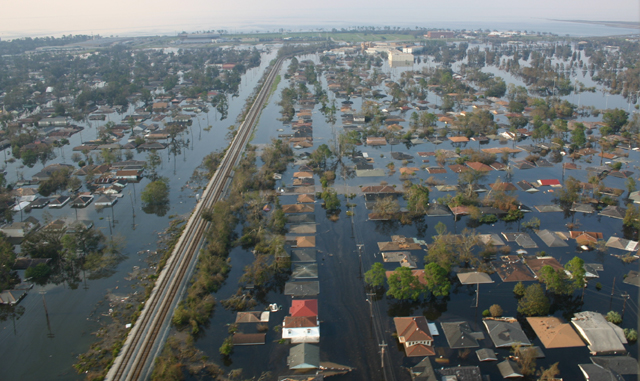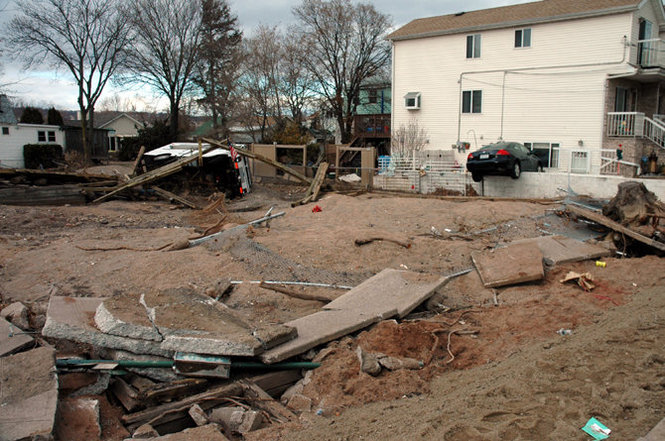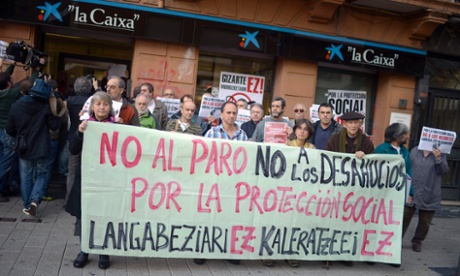Fifteen months ago, OWS launched the meme of the 99% against the one per cent. We identified the agents of the crash as “Wall Street” and its primary consequence for the 99% as debt. In 2013 the agenda has to move forward. The new agents of exploitation are the mining and energy companies. The consequences are all too visible in the climate disasters.
As 2012 closes, the first billion dollar fine has been levied against HSBC bank. It’s a good symbolic moment but it amounts to 5% of HSBC’s annual profits. Directors are “deferring” their bonuses, meaning they get them in five years time. Today, it was UBS’s turn to step up for a billion dollar hit in the LIBOR case. The banks are happy because they did not get prosecuted. The financial markets let it be known that if big banks were prosecuted and declared ineligible to trade, it would engender another financial crisis. Governments don’t want that and caved. Still, the banksters have been sufficiently cowed to stop pretending they can’t afford a small increase in their US taxes.
None of this has helped the endebted very much. Admittances to British universities are down 14% this year, thanks to new tuition fees, for example. If debt suicides got as much coverage as royal-related prank call suicides, there would be nothing else in the media at all. Personal debt can’t be fixed, it can only be abolished.
And the reason for that is all around us. Abnormally cold temperatures in Northern Europe suggest that the slowing of the Gulf stream may have begun as predicted. No IPCC prediction, it should be noted, is behind predicted pace: they are all ahead. Arctic ice melt is so far ahead of presumed pace that it’s freaking out even those inside the climate change field. Floods, typhoons, hurricanes. You know the drill. We can’t grow our way out of the debt because it just adds to the planetary emergency.
So today Britain decided to approve its “dash for gas” and endorse the expansion of fracking in the UK. Never mind that the last time they tried, it set off earthquakes–yes, really. Now all they are doing is shattering carbon emission targets and polluting the British water table. Even the British government’s own climate change commission says that the planned 40 new gas-fueled power stations are not compatible with its own goals on carbon.
And it turns out that even in the neoliberal market-driven terms it makes no sense: gas will add £600 ($1000) to energy bills per year. But the same energy from renewables would only cost £100 ($160).
So welcome to your new one per cent: the energy moguls, who are driving us to extinction in the name of sustainability.
Here’s Francis Egan, head of Cuadrilla, the UK fracking mob. He was brought in from a company called BHP Billiton. You’ve never heard of them: here’s what they do:
We are a leading global resources company. Our purpose is to create long-term shareholder value through the discovery, acquisition, development and marketing of natural resources.
We are among the world’s largest producers of major commodities, including aluminium, copper, energy coal, iron ore, manganese, metallurgical coal, nickel, silver and uranium along with substantial interests in oil and gas.
What does this mean? it means they mess things up massively all over the world. Below is their own publicity photograph, demonstrating just that.
They have revenues of $72 billion annually and make pre-tax profits of $27 billion–nice returns there of 30% profit. Where do we get this information? On the debt investors page. In other words, we have to fry the planet so BHP Billiton can pay its debts. We don’t know as much about Cuadrilla because it’s a private equity company like Monsanto. But let’s have a wild guess that it’s profile is very similar. Debt, energy and climate disaster are mutually reinforcing and catalyzing. We have to get off the roundabout.
What’s radical now: demanding an end to growth, no new fossil fuel exploitation, debt abolition and a living wage. Can’t happen? Ask HSBC and UBS.






